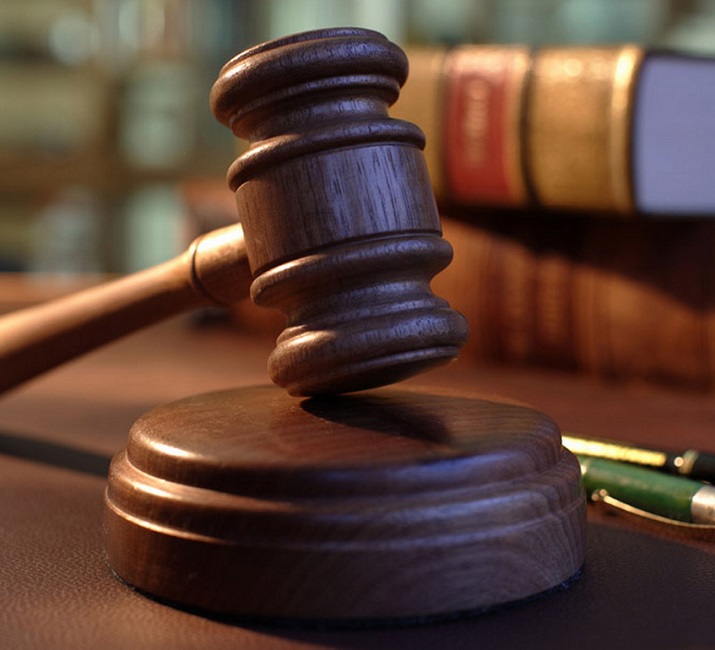What the Judicial Conference Should Tell Us on Tuesday
There’s sure to be interest in Tuesday’s Judicial Conference meeting like never before, and here are our top five issues Fix the Court hopes they mention at their post-meeting press conference:
1. An update on the Justice Thomas referral re: disclosure omissions
 In April, AO Director/JCUS Secretary Mauskopf said allegations of Justice Thomas’ violations of the Ethics in Government Act’s disclosure requirements were being referred to the Judicial Conference’s Committee on Financial Disclosure. A week ago, an AO spokesperson told the Washington Post, “That matter is under review.”
In April, AO Director/JCUS Secretary Mauskopf said allegations of Justice Thomas’ violations of the Ethics in Government Act’s disclosure requirements were being referred to the Judicial Conference’s Committee on Financial Disclosure. A week ago, an AO spokesperson told the Washington Post, “That matter is under review.”
But a review should not take five months, and a more complete update should be forthcoming. The EIGA says the Judicial Conference “shall refer to the Attorney General the name of any individual which [it] has reasonable cause to believe has […] willfully failed to file information required to be reported.”
Thomas willfully hid lavish gifts (tuition payments, RV loan), transactions (mom’s house) and travel (where to begin) for years. “Reasonable cause” is a low bar.
So a Justice Department investigation should be in the offing.
2. Livestreaming the Trump (and other) trials
Per a July Bloomberg Law article, a Conference Committee will recommend Tuesday that once pandemic-era broadcast regulations end later this month, the Conference should adopt new ones permitting “remote public audio access to civil and bankruptcy proceedings in which a witness is not testifying.” That’s pretty weak, so we co-led a letter, signed by nearly every media outlet/association in the country, asserting that any new regs must include witness testimony.
But that’s not all. We think the Conference should address the heightened public interest in the upcoming Trump trials and expand broadcast to criminal proceedings. Video would be ideal, but can’t we at least agree on live audio? Both D.D.C. and S.D. Fla. held remote proceedings during COVID and participated in the judiciary’s recent live audio pilot program. Judges Chutkan and Cannon appear to run their courtrooms judiciously. And unprecedented trials demand unprecedented (albeit very basic) access.
Hopefully, Conference members are pressed on this and will soon seek the elimination of Rule 53.
3. An update on the workplace conduct survey
A year ago, the Conference announced it would administer a survey across the judiciary to, as Reuters put it, “help identify the extent that sexual harassment, discrimination and other misconduct occurs in courthouses nationally.” Though judiciary leaders at the March JCUS meeting affirmed that some of the results of the survey would be made public, the “what” and the “when” remain unclear. We’d like an update on that and on any other third-branch workplace conduct improvements under consideration.
4. An update on posting judges’ disclosures
As of this morning, only 365, or about 15%, of an estimated 2,500 lower-court judges’ 2022 disclosures have been posted in the online database. That dearth violates the Courthouse Ethics and Transparency Act, which requires all disclosures for which no extensions/redactions were requested to be posted by mid-August. The database is still missing a good number (we estimate about 600) of the 2021s. The time for excuses — insufficient staffing being the main one we’ve heard — is over. The Conference should put pressure on the Financial Disclosure Committee to work more efficiently, and the chief judges who comprise half of the Conference should take on the responsibility to ensure their circuit’s disclosures are in on time.
5. A plan for oversight of luxurious, ideological junkets
Last month FTC wrote to Judge Mauskopf asking her to look into the propriety of recent judicial education seminars that appear to be more ideological than you’d want from the third branch and are invariably taking place at some of the country’s fanciest resorts. She has not responded, but it’d be nice to hear from the Conference Tuesday whether its members believe sending judges on free luxury vacations to learn about a type of constitutional interpretation only one side of the ideological divide employs does or does not violate Canon 2 of the Code of Conduct.